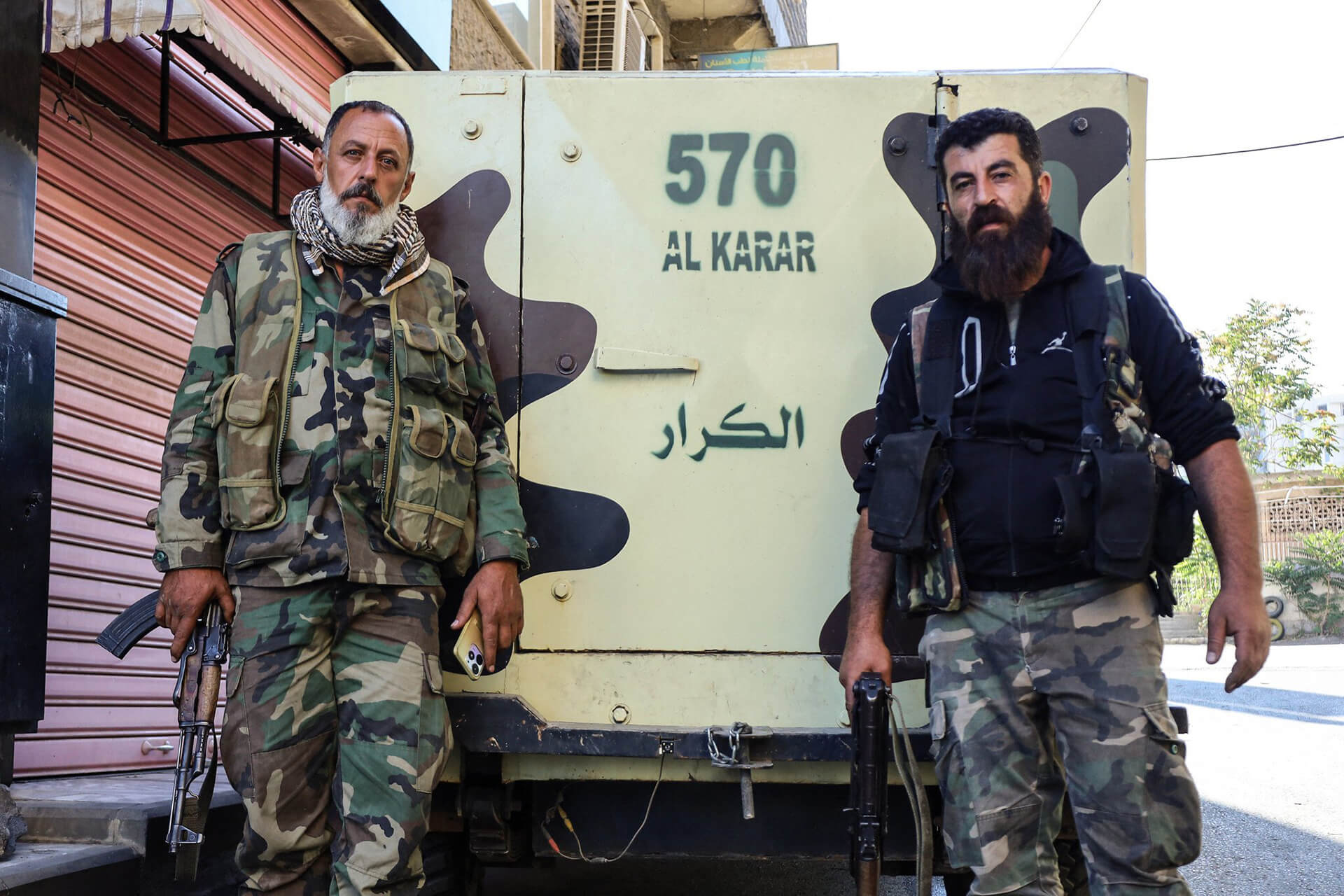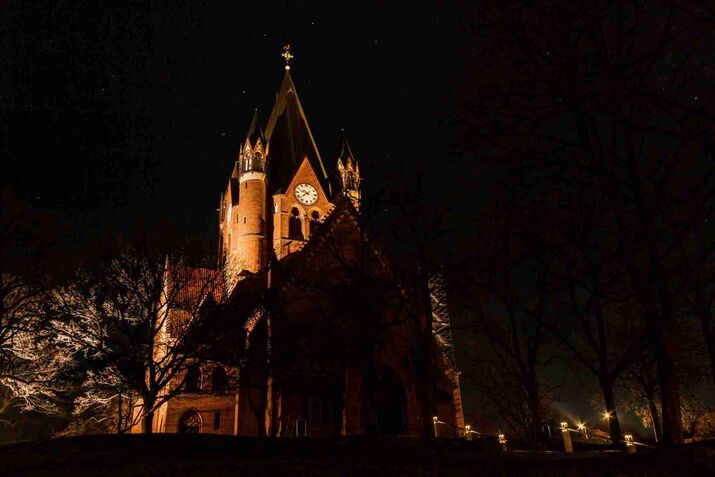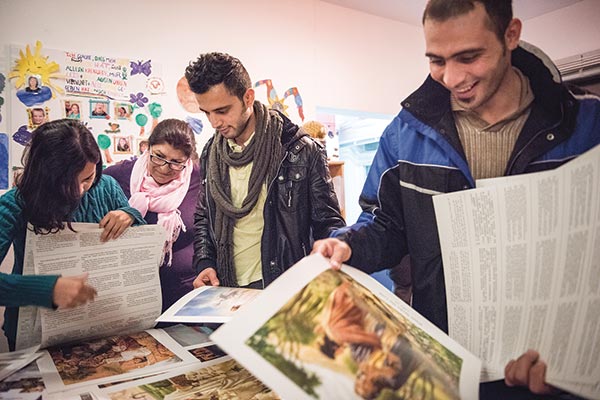Evangelism in the Middle East: From Conflict Zones to Movements of Peace
Discover how Christian missions in the Middle East are advancing through grassroots discipleship, unlikely leaders, and acts of peace, even in the midst of conflict.

Introduction
The Middle East has long been a paradox for Christianity. It is both the cradle of the faith and one of the most challenging regions for Christians today. Headlines often focus on decline, persecution, and migration. Yet beneath the surface, Christian missions are quietly taking root in unexpected ways. Far from the spotlight, grassroots discipleship movements are reshaping communities, often led by unlikely figures who once embodied violence or despair but are now carriers of peace. This article explores how Christian missions are advancing in conflict zones, the stories fueling their growth, and what lessons they hold for the global church.
Christianity Under Pressure
The statistics paint a grim picture. According to Pew Research, Christians made up approximately 14% of the population in the Middle East and North Africa in 1910; by 2010, the figure had dropped to 4%. Iraq’s Christian population plummeted from 1.5 million before 2003 to fewer than 250,000 today. Syria’s civil war displaced hundreds of thousands of believers. Lebanon, once home to a strong Christian majority, now struggles with mass emigration driven by economic collapse. Yemen and Saudi Arabia, meanwhile, remain almost entirely closed to open Christians.
Yet missions leaders caution against assuming Christianity is disappearing. What is shrinking is institutional presence. (large churches, seminaries, and official structures). What is growing, quietly but steadily, are networks of ordinary believers who gather in homes, workplaces, and refugee camps to study Scripture and follow Jesus together. In many ways, this mirrors the earliest centuries of the church, when Christianity thrived on the margins.
Discovery Bible Studies: A Movement Without Buildings
At the center of this growth is the Discovery Bible Study (DBS) model. DBS is simple: a small group gathers, reads a passage of Scripture, asks open questions (“What does this teach us about God? What does this teach us about people?”), and commits to live out what they discover. There are no professional clergy required, no costly buildings, and no elaborate programs. Anyone can facilitate, and groups can multiply quickly.
For Muslim background believers, DBS provides a safe way to explore faith. Attending a church could risk family rejection or worse, but a quiet gathering with friends is far less conspicuous. The model emphasizes obedience and discovery rather than doctrine, allowing participants to encounter Scripture firsthand. As the President of NEO US says, “We don’t make people Christian. We just point them to Jesus and let Him do the work.”
In a region where institutional religion is often tied to politics and power, this grassroots, reproducible model is proving transformative.
Stories of Transformation
The Druze Militia Leader Who Became a Disciple Maker
In the southern mountains of Syria, one Druze militia leader’s life took an extraordinary turn. Known for his rugged appearance and battle gear, he was a legend in his community. Yet he was haunted by repeated dreams of Jesus. In one, Christ promised to spare his life and call him into service. Weeks later, during a firefight, a shoulder-fired missile landed near him but did not detonate. After the battle, while debriefing with his fighters, he unknowingly sat on the unexploded round. Only after the debrief did he realize the danger he had escaped. He walked away without a scratch.
The dreams suddenly made sense. He surrendered his life to Christ, left his militia role, and began studying Scripture. Soon, he was leading Discovery Bible Studies across Druze villages. Today, he shepherds a network of groups that multiply organically, spreading faith among people who once only knew him as a warrior.
In recent weeks, the fighting in Syria came to his hometown. Christians in this area are targeted for their beliefs. Instead of rushing to the front lines to fight, he found himself assisting other Christians to escape the area. At one point, elements of ISIS surrounded the building where his sisters and nieces were staying. Instead of rushing in with weapons, he began to pray that God would save his family from a fate worse than death. Miraculously, the extremists left the area, and his family was able to flee. His story is one of radical transformation - from soldier to servant, from weapon bearer to peace builder.
Why Missions Thrive Despite Persecution
The resilience of Christian missions in the Middle East may seem surprising, but several dynamics help explain it:
- Dreams and Visions: Testimonies of supernatural encounters are widespread. They serve as catalysts for faith, especially in Muslim communities where visions carry cultural weight.
- Empowered Local Leadership: Instead of waiting years for formal training, new believers often begin leading immediately. This accelerates growth and prevents dependency on outside experts.
- Resilience Under Persecution: Far from crushing faith, persecution often strengthens it. Believers who endure imprisonment or violence inspire others to remain faithful.
- Holistic Compassion: Serving the disabled, poor, and marginalized creates credibility. In societies where Christians are minorities, their reputation for mercy often paves the way for spiritual conversations.
Missions in Conflict Zones: Building Peace in Practice
Christian missions do more than plant Bible study groups. They build community resilience in conflict zones. In Lebanese refugee camps, DBS groups double as support systems for families navigating trauma, hunger, and unemployment. In Iraq, Christian organizations run schools and clinics that serve both Christians and Muslims, fostering trust across sectarian divides. In Yemen, where humanitarian collapse has left millions starving, missions often provide food and medical aid alongside spiritual support.
This holistic approach is not new. The earliest church combined preaching with practical care, embodying Jesus’ command to love one’s neighbor as oneself. In today’s Middle East, where governments often fail to provide basic services, Christian missions step into the gap. Their presence stabilizes communities and demonstrates the gospel in tangible ways.
Historical Echoes
The growth of Christianity in the Middle East today parallels its expansion in the Roman Empire. Historians like Rodney Stark argue that Christianity grew rapidly in the 2nd and 3rd centuries not through political power but through compassion. Christians cared for the sick during epidemics, adopted abandoned children, and welcomed outsiders. Their countercultural love drew converts despite the persecution they faced.
Similarly, in the Middle East today, it is not grand cathedrals or political influence that win hearts. It is the humble acts of mercy - washing the disabled, standing with the persecuted, or blessing a stranger at a grocery store. In this way, the church in its birthplace is returning to its roots.
Lessons for the Global Church
For Christians outside the region, these stories offer both inspiration and challenge:
- Availability Over Expertise: Ordinary believers, not trained clergy, are driving these movements. Their example reminds us that availability matters more than credentials.
- Courage Over Comfort: Middle Eastern believers risk livelihoods and lives to follow Jesus. Their courage challenges Western churches to move beyond fear of awkwardness or cultural pressure.
- Community Over Celebrity: Instead of elevating individuals, movements thrive on shared leadership and grassroots multiplication. This keeps the focus on God rather than personalities.
- Compassion as Witness: Serving the vulnerable is not just charity - it is evangelism. In contexts hostile to faith, acts of love often speak louder than words.
Conclusion
From Syrian battlefields to Yemeni prisons, from Cairo’s markets to Lebanon’s refugee camps, Christian missions in the Middle East are advancing in ways that defy expectations. While traditional structures struggle, grassroots discipleship movements are thriving, fueled by visions, resilience, and radical compassion. These stories remind us that Christianity in the Middle East is not vanishing but being reborn in forms that resemble its earliest days.
For the global church, the lesson is clear: true transformation does not come from platforms, programs, or power. It comes from ordinary people living out extraordinary faith in everyday life. And in the Middle East - the birthplace of Christianity - that faith is alive and well, even in the most unlikely of places.

.webp)

